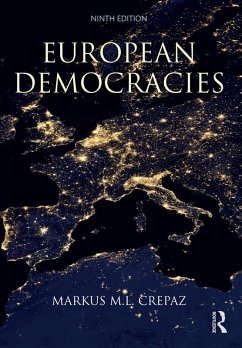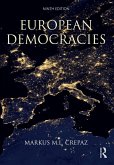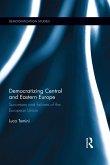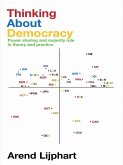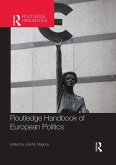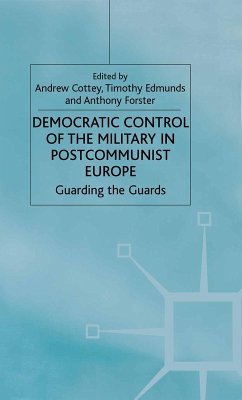Dieser Download kann aus rechtlichen Gründen nur mit Rechnungsadresse in A, B, BG, CY, CZ, D, DK, EW, E, FIN, F, GR, HR, H, IRL, I, LT, L, LR, M, NL, PL, P, R, S, SLO, SK ausgeliefert werden.
'An impressive fusion of analytical rigor with a capacity to stimulate lively discussions among students on politics and society in Europe and the United States. This textbook uses a novel comparative perspective to explain differences among European democracies, and between the United States and European democracies. I know of no textbook that does so as systematically and vividly.' - Lisa Maria Dellmuth, Stockholm University, Sweden
'As a professor and program director in an undergraduate study abroad program in Europe, I rely on European Democracies to give comprehensive and up to date information on European politics. Arranged thematically, this new revised volume provides the latest information on electoral systems and their outcomes, cabinet formation, party systems, government types, power sharing, and nationalism and ethnicity across European polities, among other important topics. Each chapter concludes with a list of important terms and interesting and timely discussion questions. Especially impressive in the recent edition is the chapter on the evolution of the former Communist states of eastern and central Europe and the discussion of globalization. This chapter provides an excellent overview of the globalization concept and its consequences for governing in post-industrial societies and is all the more important because of the rise of adverse views toward the EU and anti-immigrant political behavior in Europe coinciding with Trump's election in the U.S. I strongly recommend the Crepaz book for general courses in comparative politics as well as classes on European political systems.' - Jerome S. Legge, Jr., University of Georgia, USA.
'This is a truly comparative textbook. Organized not by countries but by concepts, Crepaz stimulates students to reflect on the possible explanations for key differences among European democracies and between Europe and the United States. An excellent basis for creative and vivid class discussions.' - Arend Lijphart, University of California, San Diego, USA

